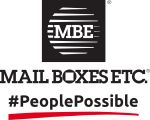Travel Franchise Opportunities
Travel agencies are some of the most well-known award winning franchises available to buy. Travel franchises include areas such as cruise, camping and customised holidays. With the opportunity to create your own niche travel company selling bespoke holidays, travel franchises provide you with options to personalise your section of the franchise to meet your own interests.
Travel Franchise Opportunities
For other industry opportunities please go to our franchise directory
Types of travel and leisure franchise businesses
Full-Service Travel
A comprehensive range of travel services, assisting customers with flight bookings, hotel reservations, itinerary planning, and potentially visa applications for complex destinations. Franchise opportunities include: The Travel Franchise (total investment: £2995) and Explorer Travel by Hays Travel (minimum investment: £5,995).
Tour Operator
Pre-designed tours for specific destinations or travel themes (e.g., adventure tours, cultural tours, luxury getaways).
Online Travel
Online travel booking, offering customers access to discounted flights, hotels, and car rentals through the franchisor's booking platform.
Cruise
Cruise holidays, assisting customers with selecting the perfect cruise line, itinerary, and cabin type, and potentially offering exclusive cruise deals.
Niche Travel
Catering to specific travel interests, such as eco-tourism, honeymoons, group travel, or accessible travel experiences.
Check out the What Franchise directory for a full list of franchise opportunities across the UK

_100_100.jpg)





_100_100.jpg)


_(1)_100_100.jpg)

Download our FREE mini-course on how to become a franchisee
Everything you need to know about buying a franchise
Ones to watch
Franchisors provide an insight into how they’ve built their businesses.
Companies to consider
Enquire now from these 0 selected franchises
Here's just five reasons why you should join our FREE newsletter!
-
New articles added every week
-
Hand picked franchise opportunities just for you
-
First class help and advice for franchising and business
-
We have the industries best contributors on board
-
Inspiring and insightful franchise case studies
What Franchise Newsletter
Keep up to date with all the industry news






























































